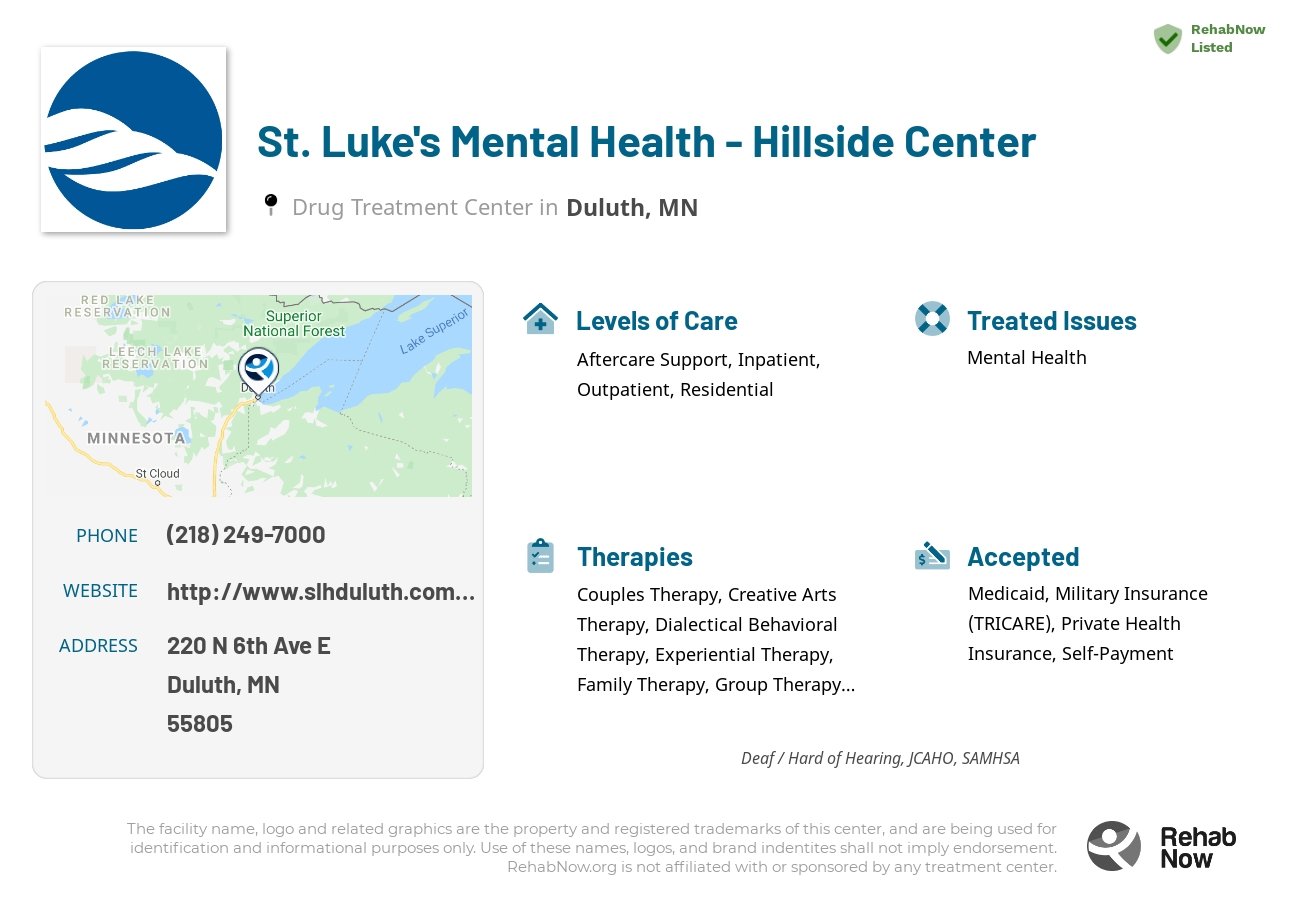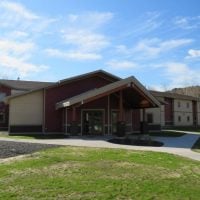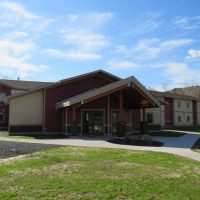St. Luke's Mental Health - Hillside Center
Drug Rehab Center in Duluth, Minnesota
St. Luke's Mental Health - Hillside Center in Duluth, Minnesota is an addiction treatment facility offering a variety of levels of care, including inpatient, outpatient, residential, and aftercare support, with services such as detoxification, counseling, medication management, and family therapy.
About St. Luke's Mental Health - Hillside Center in Minnesota
St. Luke's Mental Health - Hillside Center, located in Duluth, MN, specializes in outpatient treatment for individuals grappling with mental health challenges. This facility stands out for its patient-first approach, offering state-of-the-art care and a variety of services tailored to meet the unique needs of each individual.
- Offers a wide range of services including clinical hypnosis, emergency services, and biofeedback, catering to diverse mental health needs.
- Accredited by JCAHO and SAMHSA, ensuring high-quality care and adherence to strict standards.
- Provides comprehensive treatment plans for depression, anxiety, adjustment disorders, and major psychiatric illnesses, among others.
Accredited by both JCAHO and SAMHSA, St. Luke's Mental Health - Hillside Center is recognized for its excellence in providing mental health care. The center's commitment to medical leadership and a patient-centered focus ensures that individuals receive the best possible treatment.
St. Luke’s Mental Health - Hillside Center treats a variety of issues including depression, anxiety, and major psychiatric illnesses. Their treatment methods encompass clinical hypnosis, biofeedback, and outpatient services, offering a broad spectrum of care to those in need.
Genders
Ages
Modality
Additional
Accreditations
SAMHSA

JCAHO
Conditions and Issues Treated
Levels of Care Offered
This center offers a variety of custom treatment tailored to individual recovery. Currently available are Aftercare Support, Inpatient, Outpatient, Residential, with additional therapies available as listed below.
Inpatient treatment for alcoholism or drug addiction is an option that provides the addict with a supportive environment in which they can stop using. After detox, an inpatient treatment center provides a structured environment for the addict to recover from their addiction and begin taking steps toward a lifetime of sobriety.
This type of treatment is appropriate for addicts that are most in need of intensive care and supervision. This includes those who were unable to quit on their own, those who need more structure than they can get in outpatient treatment, and those whose addiction has led them into legal trouble or severe health problems.
Outpatient treatment is often used for drug addicts in drug rehab. Outpatient treatment consists of counseling and therapy sessions. This form of treatment is also called ‘day-treatment’. The outpatient treatment process begins with the addict’s initial detox period, lasting about ten days.
Outpatient treatment is used for those who are at moderate risk for ‘slipping back’ into the addiction, for those who:
- Are not currently experiencing any side effects from withdrawal and can handle social pressure
- Can handle stressors that might trigger relapse
- Have a stable living environment or have moved out of their previous environment, which was not conducive to being sober
- Have a support system that allows them to go to a facility a few times a week while still keeping their current responsibilities
- Have no legal obligations, being either on parole or probation, that require them to seek treatment at a mandatory facility
- Are not currently experiencing any side effects from withdrawal and can handle social pressure
- Have a stable living environment or have moved out of their previous environment, which was not conducive to being sober
Residential treatment programs are those that offer housing and meals in addition to substance abuse treatment. Rehab facilities that offer residential treatment allow patients to focus solely on recovery, in an environment totally separate from their lives. Some rehab centers specialize in short-term residential treatment (a few days to a week or two), while others solely provide treatment on a long-term basis (several weeks to months). Some offer both, and tailor treatment to the patient’s individual requirements.
Completing a drug or alcohol rehab program is only the first step. Then comes aftercare support. These services include sober living accommodations, career counseling, and AA/NA programs for those struggling with sobriety or who want help maintaining it after initial rehab at an addiction facility.
They can last up to a year or more depending on what’s needed most urgently after the earlier stages are completed.
Therapies & Programs
Because no single treatment is effective for all addicts, the goal of treatment and therapy should be to figure out what works best for each individual. Tolerance and withdrawal levels differ from person to person, affecting the treatment intensity required. Addiction treatment should aim to help addicts develop healthy coping mechanisms for dealing with their addiction and its underlying causes.
Couples therapy works with clients and significant others in a professional capacity to improve relationship dynamics. This can be helpful for addicts who are trying to marry the idea of recovery into their work, family, social lives – any aspect that has to do with relationships. Through counseling sessions, addicts will have an opportunity to talk about their addiction with professional partners.
Family therapy is beneficial for people who are in addiction treatment services because it offers addicts the opportunity to work with their family members to better understand what led them to make choices that contributed to their addiction.
This type of therapy helps family members reach a deeper understanding of how they can best support their loved one during recovery. It also helps the addict better understand their own motivations and triggers that led them to turn to substance abuse.
Family therapy can help addicts in the following ways:
- Assists family members in processing difficult feelings so they don’t blame or resent recovering addicts
- Assists family members in understanding how addiction has impacted the addict and everyone who is involved with them
- Allows the addict to take responsibility for their actions, while encouraging improved communication skills
- Helps family members understand how to best support an individual in recovery so addicts don’t relapse again.
Group therapy can help build a stronger support system and give addicts in Duluth, MN insight into their addiction that they gain through shared conversations. Group therapy occurs in a controlled group environment, exclusive of one on one meetings. This makes it safer for patients to feel comfortable sharing the struggles they’re going through and gaining perspective.
Dialectical Behavior Therapy (DBT) is a cognitive-behavioral therapy that helps patients understand the relationship between their thoughts, feelings, and behaviors. It is beneficial for those whose addictions and behaviors stem from severe mental health issues. The term “Dialectic” means the integration of opposites. In substance abuse, DBT refers to accepting the patient’s addiction and working to change their thoughts and behavior. It improves life skills such as controlling intense emotions without reacting impulsively, resolving interpersonal conflicts effectively, and promoting awareness about self and others.
Cognitive-behavioral therapy is a technique that is used to help people with addiction. Specifically, it is a way of identifying thoughts and behaviors that cause the addiction. It is typically used in an individual counseling session.
The content explains cognitive behavioral therapy and how it works to address some behaviors that may be leading to unintended consequences in their life, as well as its benefits for those seeking sobriety.
It works by helping people to talk through their issues and addressing the thoughts that cause said behaviors. It is an excellent way of learning about oneself and one’s perception of the world.
Patient Experience
Creative Arts
Creative arts therapy, known as expressive therapy, may be used as a means of treatment. Acting and music are among the various forms used to express oneself where written words would fail through poetry or song. The goal is to find a balance by integrating thoughts and feelings to improve the mental state of patients in Duluth, Minnesota.Experiential Therapy at St. Luke's Mental Health - Hillside Center
Experiential therapy uses engaging activities to help patients access deeper, often hidden emotions. For example, the patient could role-play a problematic situation or engage in activities like drawing, painting, poetry writing, music composition, exercising, or journaling to help process intense feelings.
Experiential therapy is a type of therapeutic approach that focuses on having patients work through problems, issues, or emotions by engaging directly in some real experience. Experiential therapy occurs face-to-face with a therapist who helps these people to explore their feelings first hand.
It is based on the belief that to truly understand and gain insight into oneself and behavior; it is necessary and helpful to have real experiences with the issues involved. Some therapists have developed the experiential therapy approach as a way of treating addictive behaviors or dealing with impulses related to addiction. It comes from an existential school of psychotherapy called ‘experiential existential.’
Payment Options Accepted
For specific insurance or payment methods please contact us.
Is your insurance accepted?
Ask an expert, call (888) 674-0062
St. Luke’s Mental Health Associated Centers
Discover treatment facilities under the same provider.
- St. Luke's Mental Health - St. Luke's Hospital in Duluth, MN
- St. Luke's Mental Health - Lake View Medical Clinic in Two Harbors, MN
- St. Luke's Mental Health - Laurentian Medical Clinic in Virginia, MN
- St. Luke's Mental Health - Hibbing Family Medical Clinic in Hibbing, MN
- St. Luke's Mental Health - Denfeld Medical Clinic in Duluth, MN
Learn More About St. Luke’s Mental Health Centers
Additional Details
Specifics, location, and helpful extra information.
Duluth, Minnesota 55805 Phone Number(218) 249-7000 Meta DetailsUpdated April 15, 2024
Staff Verified
St. Luke's Mental Health - Hillside Center Patient Reviews
There are no reviews yet. Be the first one to write one.
Duluth, Minnesota Addiction Information
Minnesota is fighting an opioid epidemic that is leaving hundreds of its residents dead each year. Both prescription opioids and illicit opioids are widely abused in the Land of 10,000 Lakes. Heroin continues to be one of the most commonly abused drugs in the state, if not the most common illicit drug. Over 10% of all treatment admissions in Minnesota list heroin as their drug of choice.
Duluth has a high rate of drug overdoses, with a total of 46 in 2016. In 2016, there were 708 admissions to drug and alcohol treatment centers in Duluth. The most common drugs of abuse are marijuana (39%), methamphetamine (27%), cocaine (19%), and heroin (5%). Drug treatment in Duluth can vary depending on the person's needs and preferences. Some rehab centers also offer holistic treatments, such as yoga and meditation.
Treatment in Nearby Cities
- Grand Marais, MN (105.7 mi.)
- Princeton, MN (110.7 mi.)
- Crookston, MN (222.5 mi.)
- La Crescent, MN (208.9 mi.)
- Minneapolis, MN (137.8 mi.)
Centers near St. Luke's Mental Health - Hillside Center
The facility name, logo and brand are the property and registered trademarks of St. Luke's Mental Health - Hillside Center, and are being used for identification and informational purposes only. Use of these names, logos and brands shall not imply endorsement. RehabNow.org is not affiliated with or sponsored by St. Luke's Mental Health - Hillside Center.








